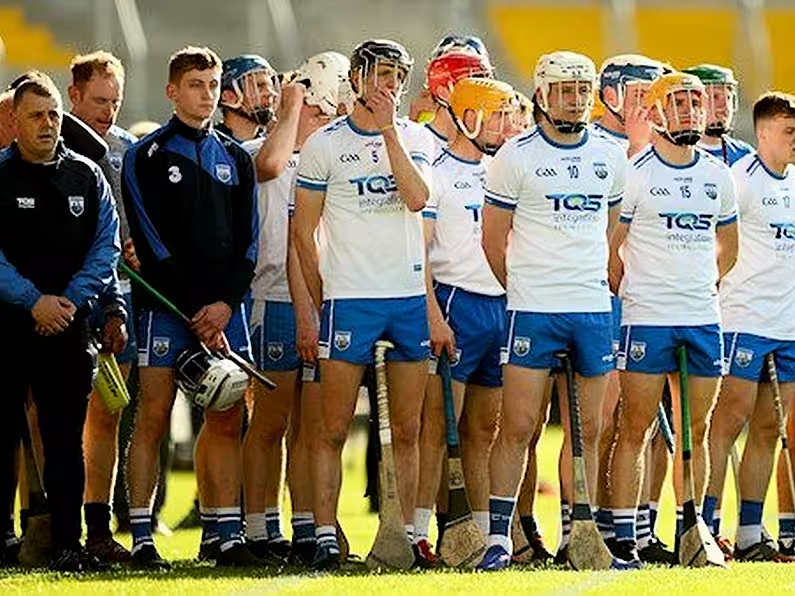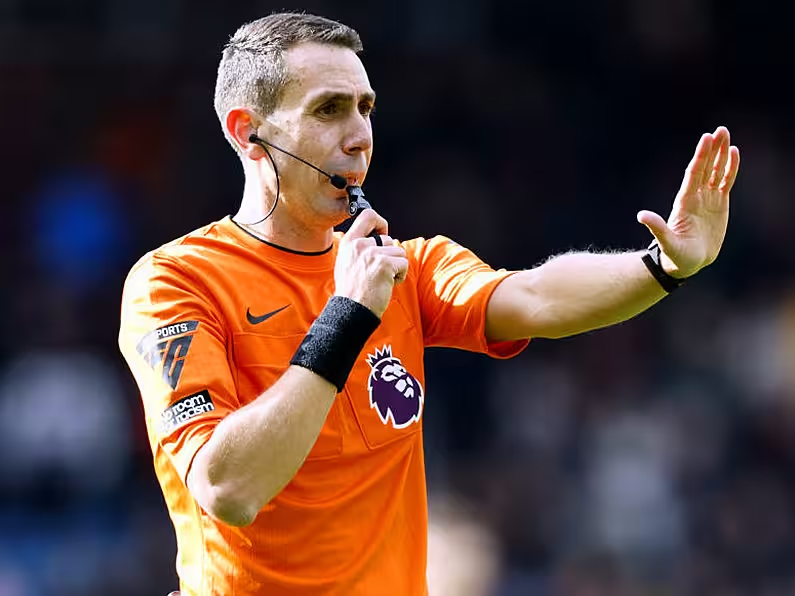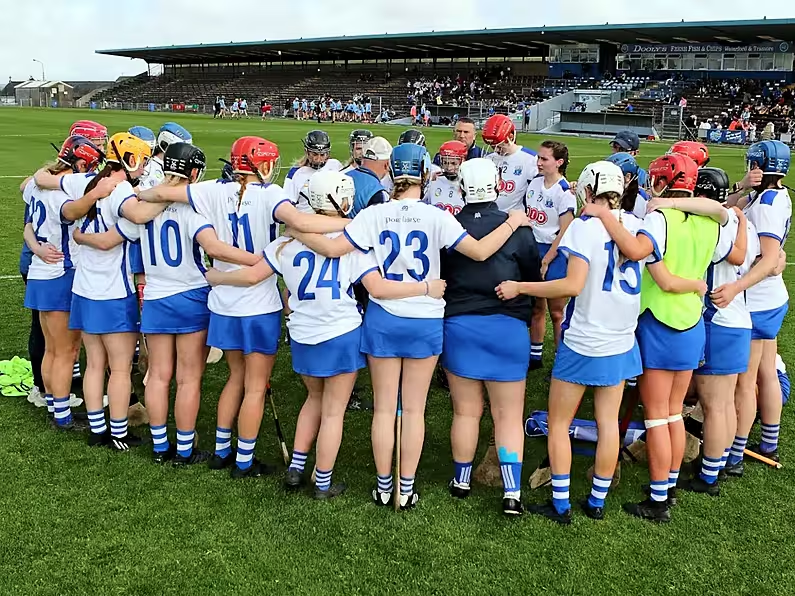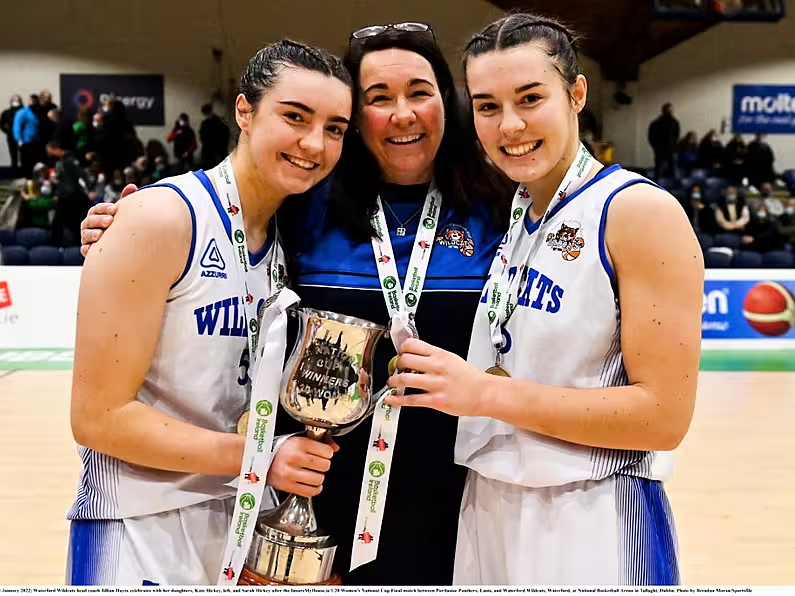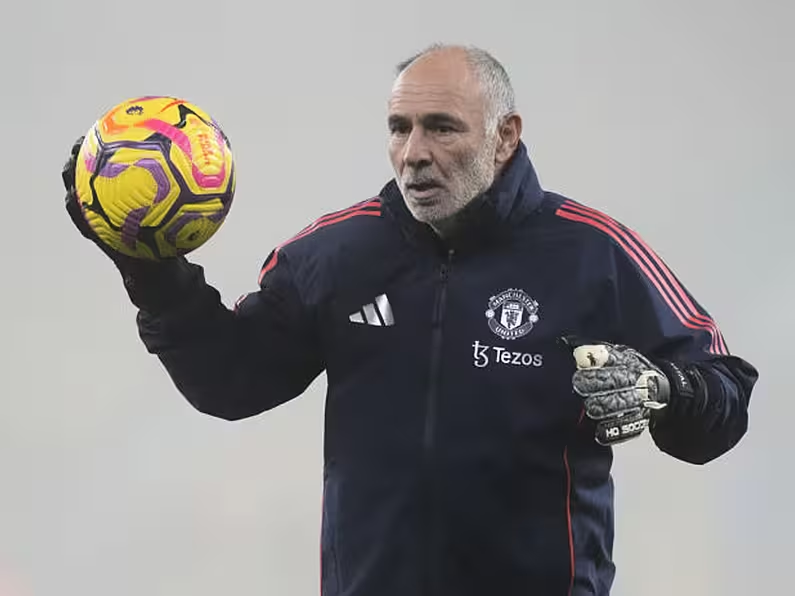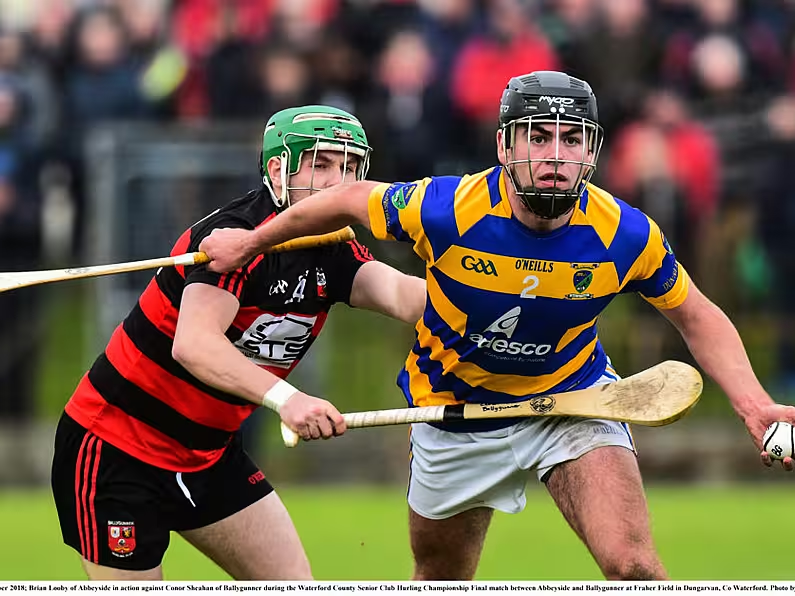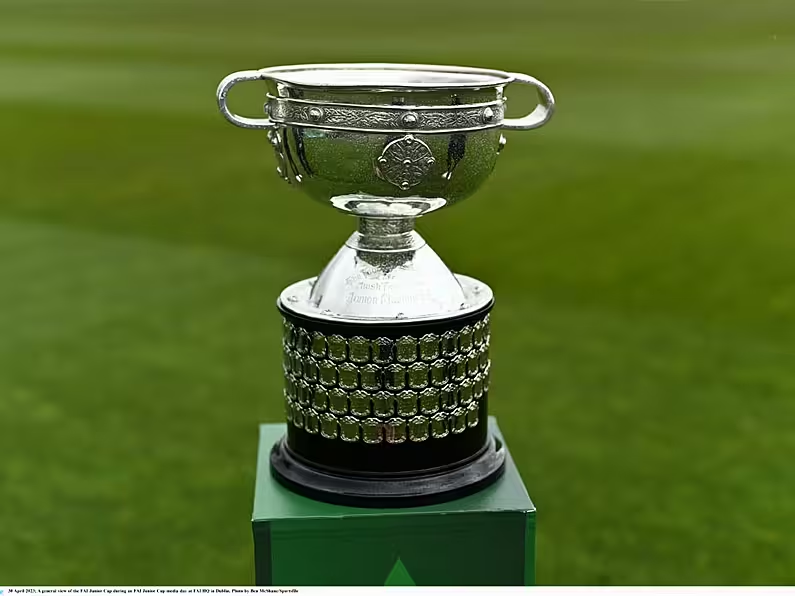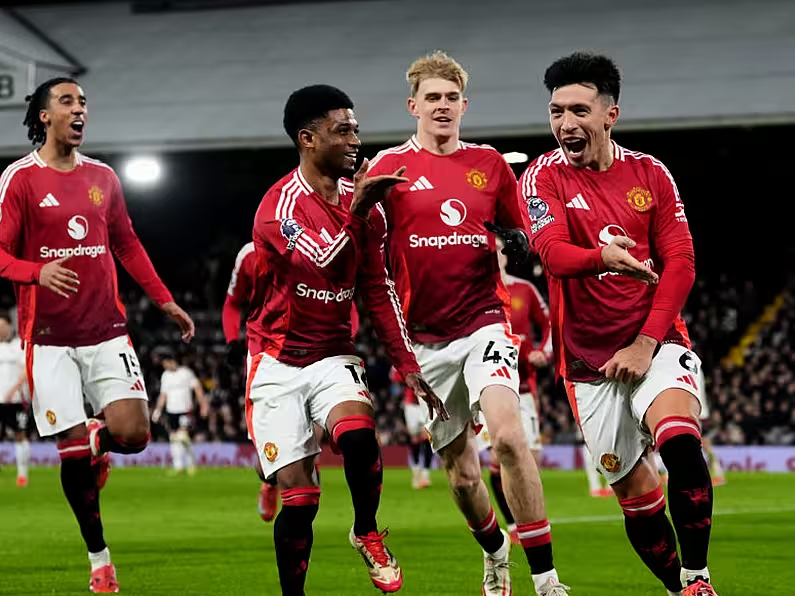There is literal and metaphorical blindness in King Lear. Sight and vision are linked to good judgment and when Lear disowns Cordelia his loyal aide Kent urges him to “see better Lear”.
When Gloucester is physically blinded by Cornwall he gains moral insight. He “stumbled when I (he) saw”, but this literal darkness acted as a catalyst for a clear vision.
A similar darkness has clouded Waterford GAA circles over the last couple of months but the first beacon of hope and light emerged at the county board meeting on Monday night.
There was a proposal from the floor by former county secretary Timmy O’Keeffe, that a review be conducted into all aspects of Waterford hurling.
Crucially the review, it was hoped, would utilise independent expertise with a connection to Waterford GAA. Among those mentioned were Fergal Hartley, as well as the CEO Of Waterford City and County Council, Michael Walsh. Both, like Timmy, are men of vision, integrity and intelligence. Having conducted many reviews in their work life, they have the necessary skillset to analyse Waterford hurling. John Treacy, former Olympian and with vast experience through his role as chief executive of Sport Ireland, also came to mind as a potential ally.
The committee could do worse than listen to the deeply insightful, intelligent and measured interview that now-retired hurler Brian O’Halloran gave on local radio on Tuesday last. Brian spoke articulately about the models of other counties in terms of their vision, their modus operandi, and how effectively they go about their business. At the same time, accepting that that there may be things we cannot copy, but can adapt and improvise to suit our means and resources.
Last week, Cork GAA advertised the position of High Performance Manager, whose remit will be to partner with the CEO, Cork GAA staff and team managers ‘to develop and strengthen strategies relating to player development within Cork GAA’.
At last Saturday night’s Waterford v Cork game, I met Cork CEO Kevin O’Donovan. I commended him on his vision and approach in terms of the position. Any time I have heard O’Donovan articulate his thoughts he has done so with great clarity, transparency and openness. Vision and substance combined.
Waterford’s disappointing summer has reminded me of the night I was interviewed for the manager’s job. I presented the board with a long-term development plan focused on five key areas:
Physical development, which would see the basic journey from strength, functional movements to position-specific conditioning and individualised programmes.
Skill development would see basic skill achievement accelerated to mastery of individual and position-specific skills that could be performed at the highest level.
Mental capacity would see the players at all levels journey from basic goal-setting to coping strategies, becoming more self-aware.
Life management would inculcate a holistic approach where players would be encouraged to think independently, cope with success and failure, have principle centred values and most importantly life balance.
The final piece of the jigsaw needed was tactical awareness, which centred on the understanding of a game plan, implementing patterns of play, problem-solving and, most importantly, the ability to adopt tactical strategies.
Six years ago, I stressed — and I’ll synopsise here — the importance of the whole journey being enjoyable, of building on success, recognising effort as a separate entity to success, ensuring a growth mindset among all, the setting up of a transitional retirement scheme which ensured reintegration of key ex-players and coaches (Briano), an induction policy, a mental health awareness programme, and the understanding by all of who we represent and why we do this.
The county board and anyone reviewing Waterford hurling should read the ‘Development Manifesto’ compiled by architect Steve Lawrence and his wife, Montessori teacher Lynne, for inspiration and guidance. This was written for Johann Cruyff to aid his “Development Centre” for Ajax so that the prepared environment for young footballers would have an interconnectedness and become an environment in which an exchange of ideas can take place.
“Shameful, embarrassing, shambolic”
These are some of the words that have dominated column inches and media outlets over the past weeks in relation to Waterford’s players. Similarly, assertions that the Clare players should be ashamed and embarrassed going to work on Monday mornings surely is the antithesis of everything our game and association stands for. Kevin Moran has braved the corridors of our school over the last few Monday mornings carrying himself with the humility, class and dignity that he has always done whilst undoubtedly hurting inside.
Páraic Fanning’s call for a measured and calm review points to a reflective mind rather than blame and bitterness. I can empathise with Páraic’s situation. However, that does not dissuade me from providing a personal opinion as to why and where Waterford have floundered so dramatically this year.
Awareness around the “social media and keyboard warriors” that have subjected the players and management to such vitriolic abuse is now being noted and rightly condemned.
The irony, however, is not lost in my house. Much of the inaccuracy, untruth and personal criticism directed at my tenure was done so through the insidious ink of local scribes.
Predictably, and thankfully, this has eased at local level over the last few months but only serves to highlight what Alan Shatter, in a letter to the editor of this paper on Tuesday last, referred to as: “The incapacity of some journalists to reassess false narratives in which they are heavily invested.”
One of the more obvious mistakes I have witnessed has been an almost blind obsession with doing everything the complete opposite way to what we tried to do over the years. Mark Twain famously said that “when you find yourself on the side of the majority, pause and reflect and ask yourself why”.
For me, Páraic has at times been led by a circle of ignorance around the Waterford hurling debate. This debate and conjecture has been fueled by the narrow-minded and lazy analysis of the team during my tenure, particularly by a section of ex-Waterford players.
The lack of substantive, factual information has been startling. The accusation that the team lacked tactical flexibility and was defensive as opposed to the cavalier, gun-slinging approach of the noughties — the ‘Waterford Way’ — is completely fabricated.
In fact, a proper factual analysis will show that the 27.6 point scoring average (including 13 goals) the team amassed en route to the All-Ireland final was the highest scoring average of any Waterford team over the last 25 years. The 2008 team that reached the All-Ireland scored an average of 24.3 points.
Even in the midst of a severe injury crisis and a lack of home venue last year, the scoring of six goals and an average return of 23 points per game is significant when you compare it to the measly totals of this year, where the scoring average weighed in at a paltry 18 points.
Waterford’s two goals last Saturday night in Páirc Uí Chaoimh were their first in open play since the last round of the league against Galway on March 11. These are facts not beliefs or opinions.
Paddy Joe Ryan’s assertion that there is no “unrest in the camp” was both untimely and ill-advised. In any camp there can be a modicum of unrest based on results and performances and the chairman should perhaps have steadied himself, informed the delegates that there are some issues that, like with previous managements (mine included), we can resolve with the intention of moving forward towards 2020.
On the playing front, and on a purely personal level, I was disappointed at Brick’s lack of game-time and the sight of him eagerly preparing himself to enter the fray on 63 minutes was both emotional and infuriating. Although completely the prerogative of Páraic, Pa and James to ‘look to the future’ and blood new leaders, I just felt the great man deserved better. To me, the show of unity at the start of the game prior to Amhrán na bhFiann looked staged and choreographed.
Many parallels have been drawn between my first year in 2014 and this year and that the need for change is as evident now as it was then. Two key differences exist in my opinion.
Firstly, I felt that the players I would be omitting for 2015 had no more to give and actually brought a negative, energy-sapping, vibe to the group.
Secondly, the players coming into the squad would be of a serious quality.
But the middle leadership group of this Waterford set-up — Tadhg, Austin, Jamie, etc — will, in my opinion, miss the positive influence and the leadership qualities that the senior members bring. I hope populist opinion doesn’t creep into the mindset of management. This populist opinion accompanied Barry Coughlan’s and Jake Dillon’s withdrawals from the panel this year. Their decisions were greeted by some with a celebratory tone. The ‘barstool’ mentality that Barry had been protected by Tadhg for years and that Jake was almost a by-product of an approach based on some form of nepotism completely belied the truth.
Both are men of character. Both serious hurlers. My guess is that even over the last difficult months they were probably referenced by the players as possessing the traits that make up the key components of a team: selflessness, humility and attitude.
The point being made is that Waterford need everyone.
This mindset that the last few years have ‘not been the Waterford Way’ hasn’t been helped by the contradictory opinions of some ex-Waterford stars. Chief among them probably Waterford’s greatest ever player Ken McGrath and his clubmate Brian Flannery.
I have no issue on a personal level but perhaps some introspection and self-reflection will lead them to decipher things more conclusively. ‘That’s the way we’ve always done it’ is the mantra of a team setting itself up to lose.
Teams led by men such as Daniel Kearney, Luke Meade, Gearóid Hegarty, Kyle Hayes, Tom Morrissey, Dan McCormack, Bonner, and Michael Breen have seen the nuanced evolution of a traditionalist approach to allow their backs to operate as a condensed group — with Messrs Hannon, Ellis and Maher all acutely aware of their jobs.
By trying to cling to the past, we have become reactive to the proactive teams who enforce their strategies on us. Certainty and clarity are at the heart of the Cork, Tipp and Limerick gameplans. Is that not how a team works?
The hypocrisy and inconsistency of the arguments put forward by Ken and Brian are now even more evident. The 15 on 15 debate, the ‘express yourself’ with exuberance and ‘play with a smile on your face’ arguments have suddenly been replaced by ‘we don’t have the quality of player coming through’. In June 2017, we were described as “a rudderless and leaderless ship”. Now there is an evocation of sympathy for Paraic and his management team.
The difference between perception and truth is stark. Last year perception centred on the team being held back under my tutelage. Now it’s a root-and-branch review because the perception is the players are not good enough.
Another reason mooted for the collapse has been the ‘closeness’ of my relationship with the players over the five years. Yes, there are bonds there that will last forever, emotive connections that are built on trust, care, love and empathy. This closeness and familial connection was necessary, in my opinion, to nurture, mould and progress the team and to ensure a unity of purpose, a collective spirit, an intangible that could then defy logic where necessary.
However close the relationship, it was the most challenging environment also, striving towards continuous improvement and recognising the importance and connection between detail and performance.
We did not train on Christmas Day for three consecutive years to remain in a comfort zone. We did so because we always had to have an edge. I completely concur with Brian O’Halloran’s observation about the psychological mindset of the players when things were not going well. Perhaps the template to support each other no matter what will emerge from the findings of the review body.
When mulling over the Waterford situation, my favourite line from ‘Shawshank’ comes to mind. Andy Dufresne questions the villainous warden Norton, asking him: “How can you be so obtuse… is it deliberate?”
I wonder how we can be so ‘obtuse’ at times. Brian Flannery’s caustic comment that Páraic won’t be having barbecues in his house anytime soon, or quoting poets or philosophers, was more than a reflection of Brian himself.
Unfortunately, that kind of talk permeated its way into people’s thinking. Many remarks over the last five years now only serve to remind me of the disparity between how players and managers think.
Some brief sojourns into management underline that not all great players have the transferable skills needed for management.
Instead of admonishing and criticising, perhaps they and the board should ask themselves: what is their vision for Waterford?
The definition of success over the last 10 years has been up for debate. Ken admitted that “I don’t know where that success is”.
Certainly our tenure is nowhere comparable to his brilliant era. However, with mature and accurate reflection and more self-awareness, it might be accepted that three consecutive All-Ireland semi-finals, two Munster final defeats, two National League finals (winning one), an All-Ireland final loss, a record-equaling number of All-Stars, a Young Hurler of the Year and a Senior Hurler of the Year, might not be as bad a definition of success as initially thought.
The key decisions going forward revolve around the word ‘vision’. Right now with summer hopefully imminent the barbecue will reappear, an opportunity to share stories, songs and poems. An opportunity to talk hurling with friends. Friends with a shared vision just like Swift and Shakespeare:
Swift said: “Vision is the art of seeing what is invisible to others”.
Waterford, like Lear, need to “see better”.



